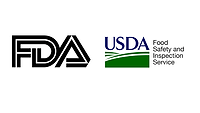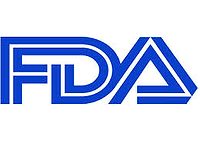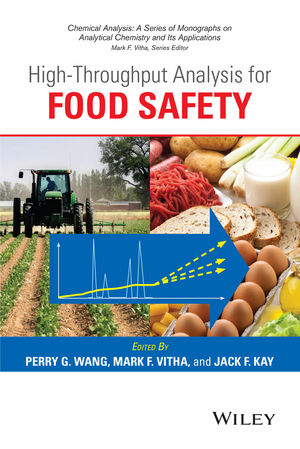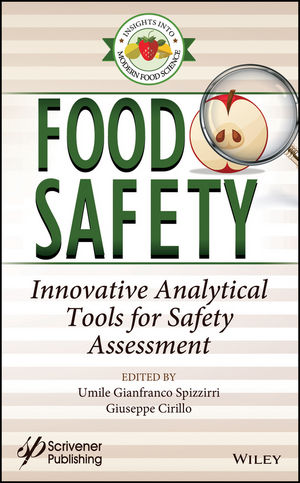USDA-FSIS Announces Achievements for 2020, Progress on Modernization Goals

The U.S. Department of Agriculture’s (USDA) Food Safety and Inspection Service (FSIS) today announced key achievements for fiscal year (FY) 2020 and highlighted progress on its goal of modernizing the agency and fulfilling its mission to prevent foodborne illness and protect public health.
“This has been a challenging year, but FSIS has continued moving forward with its food safety mission,” said Mindy Brashears, Ph.D., under secretary for food safety. “FSIS employees stepped up to ensure that safe and wholesome food continued to be on the American dinner table.”
FSIS Fulfilled Federal Inspection Requirements
FSIS currently employs approximately 9,000 employees, of which around 8,000 work in federally regulated establishments, laboratories, import establishments, or in-commerce facilities. During coronavirus disease 2019 (COVID-19), FSIS protected its employees by supplying and requiring the use of protective equipment (face masks and face shields) as outlined in guidance from the U.S. Centers for Disease Control and Prevention (CDC). FSIS took the unprecedented step of allowing those inspectors in high-risk health categories to self-certify with their supervisor and excused them from inspection duties with full pay until protective equipment was available. To ensure that employees had the latest information, FSIS held multiple, weekly town hall calls with senior leadership and responded to nearly 1,000 employee feedback emails. The agency also hosted frequent calls with all FSIS-regulated establishments to address COVID-19 questions.
No FSIS regulated establishments closed due to a lack of inspection personnel, as the agency continued to fulfill its congressionally mandated mission to provide safe and wholesome meat, poultry, and egg products to consumers. FSIS supplemented its inspection personnel by increasing the number of hours part-time workers could work and by calling on other USDA employees trained in inspection from FSIS, the Agricultural Marketing Service, and the Animal and Plant Health Inspection Service.
In FY 2020, the agency inspected more than 166 million head of livestock and 9.68 billion poultry carcasses. Additionally, FSIS inspected 2.5 billion pounds of liquid, frozen, and dried egg products. FSIS inspection program personnel also conducted 7.3 million food safety and food defense procedures across 6,500 regulated establishments to ensure meat, poultry, and egg products are safe and wholesome.
FSIS recognized that industry and retailers faced challenges with labeling and redirecting products for retail sale. FSIS allowed temporary labeling flexibilities through the end of 2020 to help redirect food from foodservice (hotels, restaurants) to retail establishments.
FSIS achieved a faster, more efficient label evaluation process and quicker turnaround of label applications. In FY 2020, the new label approval process took about 5–7 days, significantly less than in previous years. FSIS also presented webinars on the updated Compliance Guideline for Label Approval, the updated Animal Raising Claims, and Bioengineered/Non-GMO Labeling Guideline.
In FY 2020, FSIS and the states of Iowa and Vermont finalized Cooperative Interstate Shipment (CIS) agreements, which allow for certain state-inspected meat and poultry processors to ship their products across state lines. The CIS program promotes the expansion of business opportunities for state-inspected meat and poultry establishments.
FSIS and Rural Development also held a joint webinar on support options for individuals interested in starting a small-scale meat processing operation or growing their existing business. Additionally, FSIS facilitated two roundtables/listening sessions for small and very small plants.
Modernization of Inspection Systems and Operations
FSIS continued its initiative to modernize inspection systems and operations to control for pathogens and advance efficiencies while protecting public health.
In October 2019, FSIS published the final rule on the Modernization of Swine Slaughter Inspection. The final rule is comprised of two parts—mandatory microbial testing requirements at all swine establishments, and the New Swine Slaughter Inspection System (NSIS), which establishments can choose to operate under, or they can remain under the traditional slaughter inspection system. Under NSIS, FSIS increases offline inspection tasks that have a direct impact on public health while maintaining 100 percent carcass-by-carcass inspection. Seven plants have converted to the new inspection system in FY 2020, including five Hazard Analysis and Critical Control Points-Based Inspection Models Project (HIMP) plants and two non-HIMP plants
FSIS announced the Egg Products Inspection Regulations final rule on September 9, 2020, the first time that egg product inspection methods have been modernized since Congress passed the Egg Products Inspection Act in 1970. The final rule updated the egg products regulations to be consistent with current Hazard Analysis and Critical Control Points (HACCP) requirements in the meat and poultry products inspection regulations. Under the HACCP system, plants can tailor a food safety system that best fits their particular facility and equipment while still meeting all regulatory requirements for safe and wholesome products.
Targeting Foodborne Illness
FSIS continued to take action to reduce foodborne illness and protect public health. FSIS proposed and requested public comment on updated Salmonella performance standards for raw ground beef and new Salmonella performance standards for beef manufacturing trimmings, a primary component of raw ground beef. FSIS proposed both standards to ensure that establishments are consistently controlling or reducing Salmonella, a pathogen not ordinarily considered an adulterant in raw beef products.
FSIS also modernized laboratory methods for identifying Salmonella. For samples collected after January 1, 2020, labs began to use DNA data analysis to detect Salmonella strains in place of traditional methods.
In June 2020, FSIS requested comments on the proposal to expand its routine verification testing for six non-O157 Shiga toxin-producing Escherichia coli (STEC) to ground beef, bench trim, and other raw ground beef components (e.g., cheek meat) to further protect public health. Currently, FSIS analyzes all ground beef, bench trim, and other raw ground beef components for E. coli O157:H7, but only tests its beef manufacturing trimmings samples for the six non-O157 STEC. FSIS is currently reviewing the public comments.
In September 2020, FSIS in conjunction with USDA’s Office of Food Safety released the Roadmap to Reducing Salmonella: Driving Change through Science-Based Policy, which outlines programs and policies that are science-based, data-driven, and promote innovation to reduce Salmonella in meat, poultry, and egg products.
Collaboration
FSIS collaborated with the CDC and the FDA to meet the agency’s goal to improve coordination of federal food safety efforts and address priorities for food safety data. In July 2020, FSIS and FDA posted a joint webinar to discuss roles and responsibilities for cultured animal cell food and feed products. During the webinar, experts provided information on USDA and FDA statutory authority, roles and responsibilities for cultured animal cell food and feed products, and regulatory points of contact for new food production technology. FSIS also hosted meetings of the National Advisory Committee on Microbiological Criteria for Foods and the National Advisory Committee on Meat and Poultry Inspection.
Inspecting Foreign Imports
FSIS reinspects all commercial products imported to the U.S. from eligible foreign countries at official import inspection establishments. The agency reinspected 4.3 billion pounds of meat and poultry and 7 million pounds of eggs in FY 2020. FSIS also evaluates foreign counties’ food safety inspection systems to determine their equivalence before the country can export products to the United States. During FY 2020, FSIS made four initial equivalence determinations and two reinstatement determinations for products exported from the People’s Republic of China and the United Kingdom.
In January, FSIS allowed U.S. exporters to electronically apply for and receive export certification for the People’s Republic of China. This expansion created efficiencies for both U.S. exporters and FSIS in certifying products for export and increased security of export certificates.
Next Steps for Fiscal Year 2021
FSIS will continue to focus on food safety modernization, including:
- Exploring improvements to beef slaughter inspection;
- Implementing updated Salmonella performance standards for raw ground beef and new Salmonella performance standards for beef manufacturing trimmings;
- Developing new pathogen reduction performance standards for Salmonella in pork products;
- Proposing a regulatory change that expands the Accredited Laboratory Program to include microbial testing and additional chemical testing;
- Continuing a phased-in implementation of the Public Health Information System export and import components by expanding the number of countries using an electronic process; and
- Proposing to hold quarterly virtual roundtables with small and very small plants with congressional participation.
Looking for a reprint of this article?
From high-res PDFs to custom plaques, order your copy today!



.png?height=200&t=1661887788&width=200)




